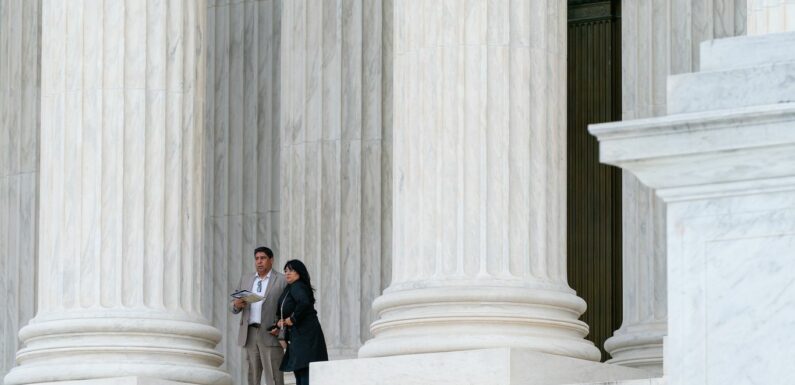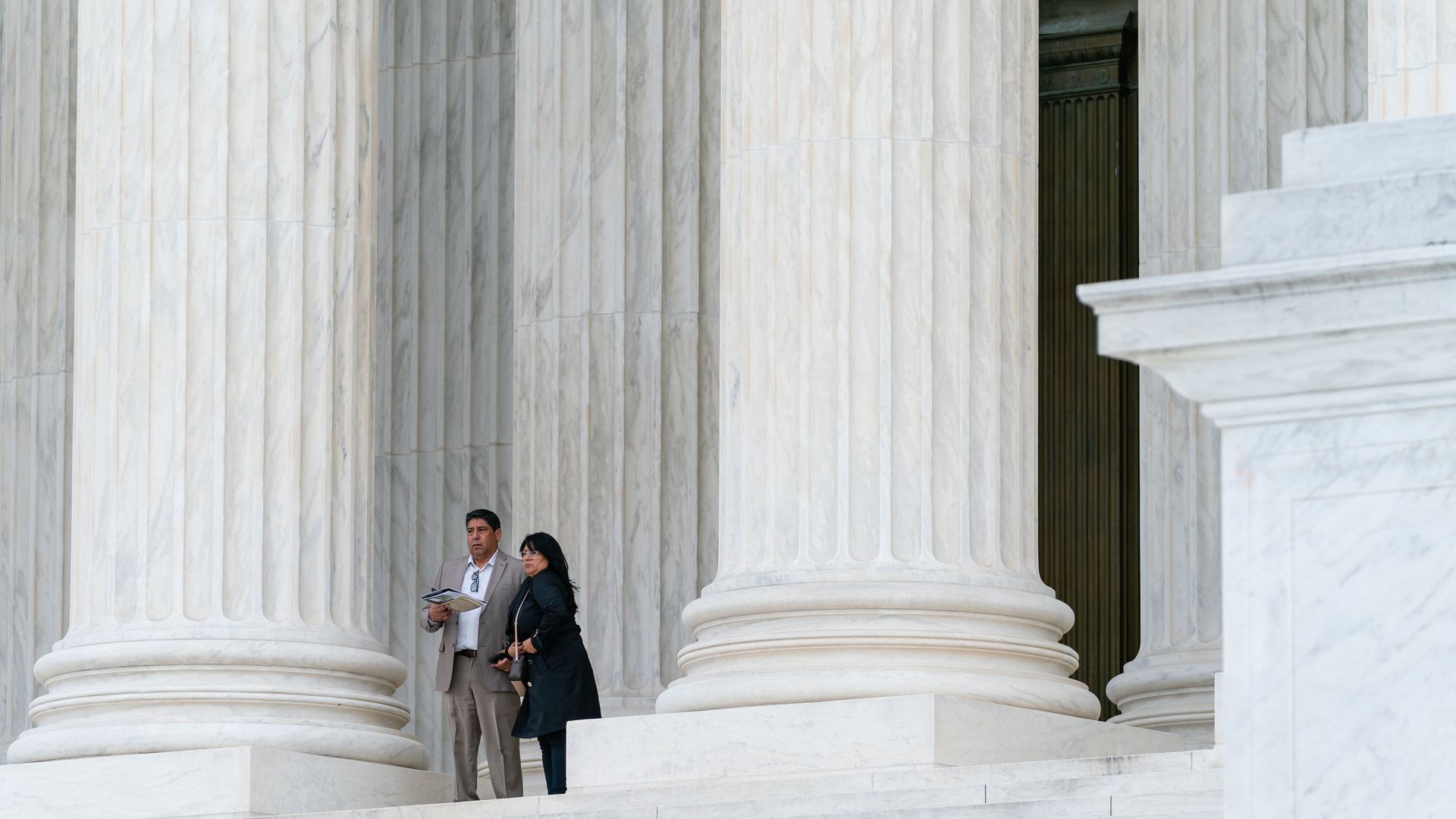
Beatrice Gonzalez and Jose Hernandez, the mother and stepfather of Nohemi Gonzalez, a US citizen who was killed in coordinated attacks by the Islamic State in Paris in Nov. 2015, exit the US Supreme Court in Washington, DC, US, on Wednesday, Feb. 22, 2023. Photo: Eric Lee/Bloomberg via Getty Images
Justices seemed generally hesitant to impose liability for terrorism content on social media on the second day of oral arguments in back-to-back tech cases at the Supreme Court this week.
Driving the news: The court heard arguments Wednesday in Twitter vs. Taamneh, a case hinging on whether Twitter's content policies contributed to a 2017 ISIS attack in Istanbul.
- Family members of Nawras Alassaf, who was killed in the attack, are accusing Twitter of violating the Anti-Terrorism Act — not because a specific account or post inspired the act, but because Twitter has provided accounts to members of ISIS in the past.
Why it matters: A ruling for the plaintiffs in either this case or Google vs. Gonzalez, a case involving YouTube heard Tuesday, could change the way social media works and open online platforms to much wider liability for terrorist content.
What they're saying: Twitter's attorney, Seth Waxman, argued the platform should not be held liable as it did not provide any substantial assistance to terrorist groups using the platform.
- U.S. deputy solicitor general Edwin Kneedler argued that a ruling against Twitter would open the door to many other businesses, such as banks and charities, being held liable under the terrorism law, even when they didn't know terrorists were using their services.
Details: Much of Wednesday's arguments involved the justices debating what should count as "knowingly providing substantial assistance" to an act of international terrorism, as defined by the Anti-Terrorism Act.
- Justice Neil Gorsuch pointed out that the plaintiffs' suit does not actually link Twitter to the terrorists involved in the 2017 terrorist attack.
Other justices did not sound convinced Twitter was totally in the clear.
- Justice Ketanji Brown Jackson took issue with Waxman's argument that Anti-Terrorism Act liability arises when a defendant provides substantial assistance to an act of terrorism, and that there's a "gulf" between that assistance and "general support" to a terrorist group. "I don't know that I see clearly that distinction," Jackson said.
The big picture: The justices repeatedly drew parallels between terrorists posting on social media and terrorists using banks or dining at restaurants. That's worrisome, Evelyn Douek, an assistant professor at Stanford Law School, told Axios.
- "One of the things that was surprising today was how little conversation there was about speech issues involved in these cases and the ways in which social media platforms and speech intermediaries are different from other intermediaries like restaurants and gun shops," Douek said.
- "I think the First Amendment was mentioned once… I'm surprised that didn't come up more often."
What's next: The court is expected to issue rulings in both cases by the end ofJune.
Source: Read Full Article
